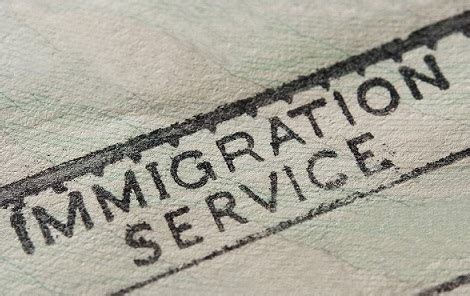Understanding Migration: Causes, Impacts, and Solutions
Migration, both forced and voluntary, has been an integral aspect of human history. Today, the term "migrant" encompasses a diverse group of individuals who move from one place to another, whether it be within their own country or across international borders. Let's delve into the multifaceted nature of migration, exploring its causes, impacts, and potential solutions.
Causes of Migration

Economic Factors
Economic disparities between regions and countries often drive individuals to seek better opportunities elsewhere. Factors such as poverty, unemployment, and lack of economic prospects push people to migrate in search of employment and improved living standards.
Political Instability and Conflict
Conflict, persecution, and political unrest compel many to flee their homes in search of safety and security. Civil wars, human rights abuses, and authoritarian regimes force individuals to seek refuge in other countries to escape violence and persecution.
Environmental Factors
Environmental degradation, natural disasters, and climate change increasingly contribute to migration patterns. Rising sea levels, droughts, floods, and extreme weather events can devastate communities, leading to displacement and migration as people seek safer and more sustainable living environments.
Social and Demographic Factors
Social factors such as family reunification, education, and marriage also influence migration decisions. Additionally, demographic shifts, such as aging populations in some regions and youth bulges in others, can impact migration trends.
Impacts of Migration
Economic Impacts
Migration can have both positive and negative economic impacts on sending and receiving countries. Migrants often contribute to the labor force, filling essential roles in sectors facing shortages of skilled workers. However, they may also face exploitation and unfair working conditions, particularly in informal sectors.
Social Impacts
Migration can enrich societies culturally, bringing diversity and new perspectives. However, it can also strain social cohesion and lead to tensions, especially in communities where migrants face discrimination and xenophobia. Integration policies and efforts to promote social inclusion are crucial in addressing these challenges.
Environmental Impacts
Largescale migration can exert pressure on natural resources and infrastructure in destination areas, leading to environmental degradation if not managed sustainably. Urbanization driven by migration can strain water resources, increase pollution, and contribute to habitat destruction if proper planning and environmental management strategies are not implemented.
Political Impacts
Migration issues often become politicized, shaping public discourse and policy agendas. Debates surrounding immigration policies, border security, and refugee resettlement can polarize societies and influence electoral outcomes. Addressing the root causes of migration and promoting cooperation among countries are essential for fostering constructive dialogue and effective policy solutions.
Solutions to Migration Challenges
Addressing Root Causes
Efforts to address the root causes of migration, including poverty, conflict, and environmental degradation, are essential for reducing forced displacement. This requires international cooperation, development assistance, conflict resolution, and investments in sustainable development.
Strengthening Legal Frameworks
Establishing clear and fair immigration laws and policies is crucial for ensuring the rights and protection of migrants. Strengthening legal frameworks can help prevent exploitation, human trafficking, and irregular migration while facilitating safe and orderly migration pathways.
Promoting Integration and Social Cohesion
Investing in programs that promote the social and economic integration of migrants is essential for fostering inclusive societies. Language training, education, skills development, and access to healthcare and social services can facilitate the integration process and promote social cohesion.
Enhancing International Cooperation
Addressing migration challenges requires coordinated efforts at the international level. Cooperation among countries of origin, transit, and destination is essential for managing migration flows, combating human trafficking, and protecting the rights of migrants and refugees.
Conclusion
Migration is a complex and multifaceted phenomenon shaped by various economic, political, social, and environmental factors. While it presents both opportunities and challenges for societies around the world, addressing the root causes of migration, strengthening legal frameworks, promoting integration, and enhancing international cooperation are crucial steps in fostering sustainable and humane migration policies. By working together, countries can harness the potential of migration to create more inclusive and prosperous societies for all.









